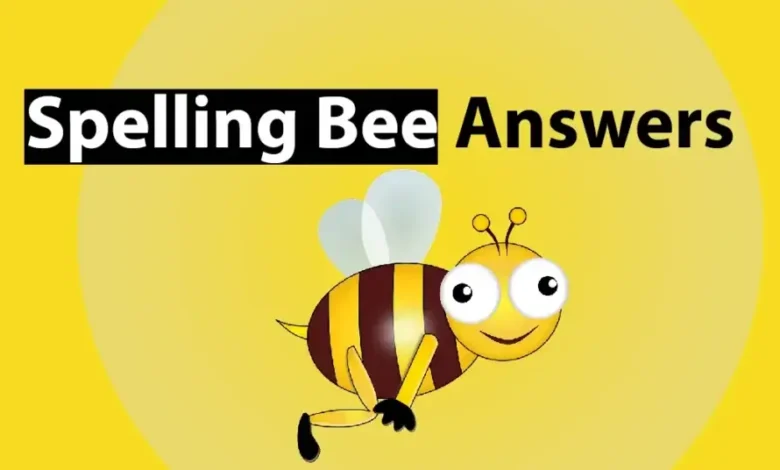Spelling bees are a beloved tradition in the United States, showcasing the linguistic skills and hard work of students across the nation. Each year, thousands of children participate in local, regional, and national competitions, culminating in events like the Scripps National Spelling Bee. This comprehensive guide explores everything you need to know about spelling bee answers, effective study techniques, and resources to help participants succeed.
Understanding the Spelling Bee Structure
What is a Spelling Bee?
A spelling bee is a competition where participants are asked to spell a wide variety of words, typically one at a time. Competitors must spell the words correctly to advance through the rounds. The event can be held at various levels, from local schools to national competitions, and it emphasizes not only spelling but also vocabulary, language skills, and quick thinking.
Levels of Competition
- Local Bees: Schools typically hold local spelling bees to select participants for regional competitions. These events are often less formal but can be just as competitive.
- Regional Bees: Winners from local competitions compete at regional bees, which can cover larger geographical areas.
- National Bees: The pinnacle of spelling bees in the U.S. is the Scripps National Spelling Bee, where top competitors from across the country showcase their skills.
The Importance of Vocabulary
Why Vocabulary Matters
In spelling bees, vocabulary knowledge is crucial. Many of the words presented are derived from various languages, including Latin, Greek, French, and German. A strong vocabulary helps participants not only with spelling but also with understanding the meanings and origins of words, which can be a significant advantage during the competition.
Building Vocabular
- Reading Widely: Encouraging participants to read books from various genres can enhance their vocabulary. Literature, science, and historical texts introduce unique words and contexts.
- Using Flashcards: Creating flashcards for challenging words can help reinforce memory. Participants can include definitions, synonyms, and usage in sentences to deepen their understanding.
- Word Lists: Many spelling bees provide official word lists. Familiarizing oneself with these lists is essential, as many competition words are drawn from them.
Study Techniques for Success

Developing a Study Plan
Creating a structured study plan is vital for success in spelling bees. A well-organized approach ensures that participants cover all necessary material without becoming overwhelmed.
- Set Goals: Establish clear, achievable goals for each study session, whether it’s mastering a set number of words or improving spelling accuracy.
- Daily Practice: Regular practice is key. Dedicating a specific amount of time each day to study can lead to significant improvement.
- Practice Tests: Taking practice tests under timed conditions can help participants get used to the pressure of competition. This also allows them to identify areas needing improvement.
Techniques for Memorization
- Mnemonics: Utilizing mnemonic devices can aid in remembering difficult spellings. Associating a word with a visual image or a rhyme can make it easier to recall.
- Chunking: Breaking words into smaller, manageable parts can help with memorization. For instance, the word “unbelievable” can be chunked into “un-believ-able.”
- Repetition: Repeatedly writing and saying words aloud reinforces memory. This multisensory approach can enhance retention.
Resources for Spelling Bee Preparation
Books and Workbooks
Several books and workbooks are specifically designed for spelling bee preparation. These resources often include word lists, practice exercises, and strategies for success. Some popular titles include:
- “The Scripps National Spelling Bee: Official Study Guide” – This guide provides insight into the structure of the competition and includes a word list.
- “Spell It!” – Published by the Scripps National Spelling Bee, this workbook offers practice words, definitions, and usage.
- “Word Power Made Easy” – While not specific to spelling bees, this vocabulary-building book helps participants expand their word knowledge.
Online Resources
- Spelling Bee Websites: Websites like the official Scripps National Spelling Bee site offer resources, word lists, and tips for participants.
- Apps: Numerous mobile apps are available for spelling practice. These apps often include games and quizzes that make learning engaging.
- YouTube Channels: Many educators and former spelling bee champions share tips, word breakdowns, and strategies on YouTube, providing valuable insights for competitors.
Joining Spelling Clubs
Participating in spelling clubs can provide invaluable practice and support. These clubs often organize regular meetings where members can engage in mock spelling bees, share resources, and motivate one another. Joining a community of like-minded individuals fosters a sense of camaraderie and encourages consistent practice.
Mental Preparation and Confidence
The Psychological Aspect
Competing in a spelling bee can be nerve-wracking. Mental preparation is as crucial as academic preparation. Participants should learn techniques to manage anxiety and maintain focus during the competition.
- Visualization: Encouraging participants to visualize themselves successfully spelling words can build confidence and reduce anxiety.
- Mindfulness Techniques: Practicing mindfulness or meditation can help participants center themselves and focus during competitions.
- Positive Affirmations: Repeating positive affirmations can boost self-esteem and instill a sense of confidence.
Handling Pressure
Competitions often come with high stakes, and participants must learn to manage pressure effectively. Strategies include:
- Breathing Exercises: Deep breathing techniques can help calm nerves before and during the competition.
- Focusing on the Process: Rather than fixating on winning, participants should focus on their preparation and effort, which can help reduce performance anxiety.
After the Competition: Reflecting and Learning
Embracing the Experience
Regardless of the outcome, every spelling bee experience offers valuable lessons. Participants should take time to reflect on their performance, celebrating their achievements and identifying areas for improvement.
Continuous Learning
Spelling bees can spark a lifelong love for language and learning. Encouraging participants to continue exploring new words and enhancing their vocabulary can lead to personal growth beyond competitions.
Conclusion
Participating in spelling bees is a rewarding experience that teaches valuable skills such as discipline, resilience, and a love for language. By employing effective study techniques, utilizing available resources, and fostering mental preparation, competitors can enhance their chances of success. Whether they reach the national stage or participate in local events, the journey is an enriching one, filled with opportunities for growth and learning. Through dedication and support, participants can not only master spelling but also develop a profound appreciation for the intricacies of language.


2 thoughts on “The Ultimate Guide to USA Spelling Bee Answers: Insights, Strategies, and Resources”